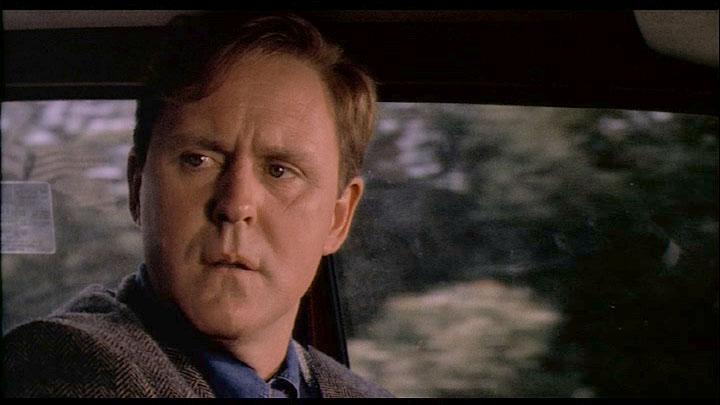
Raising Cain (Movie Review)
John Lithgow’s recent run on Dexter was probably a shock for those who best know him for his 6 seasons on “3rd Rock From the Sun” but prior to his sitcom days he was best known for playing some fairly weird roles in some fairly weird movies like “The World According to Garp”, “Buckaroo Banzai” and “Twilight Zone: The Movie”. One of his weirdest roles was as the title character (sort of) in Brian De Palma’s “Raising Cain”. Lithgow plays Dr. Carter Nix, a highly respected second-generation child psychologist whose father is considered one of the world’s foremost experts on childhood traumas. Dr. Nix’s relationship with his wife Jenny has become strained because she is concerned about his obsessive behavior towards their daughter. He took time off from his practice to care for their daughter, but Jenny feels like he’s not parenting so much as studying the little girl. This anxiety combined with a chance encounter leads to Jenny
reigniting an old affair. When Nix finds out about the affair, it triggers a long suppressed multiple personality disorder in him and he begins having visitations from Cain, the manifestation of his dark side, who has his own malevolent take on how to deal with his wife’s infidelities.
First things first – “Raising Cain” is a supremely absurd movie. It has moments of melodrama which border on camp and feel more like something out of a movie from the 1950s than the 1990s. For example, a coroner explains that a drowning victim might have actually been murdered. He goes through the standard forensics spiel before finally throwing back the sheet and saying “You should see her face!”, which is frozen into a final, horrified scream. Cue the screeching strings then quickly cut away. It’s the kind of brazenly and unapologetic silliness that’s all too rare these days when horror movies tend to be either deadly serious or so meta and self-aware that watching them is not so much fun as “fun”. The script itself is just ridiculous and when the twists and revelations start piling on in the third act De Palma shows a full-on willingness to go boldly into B-movie territory. His trademark Hitchcock aping is in full-force and there’s more than a little of Psycho’s DNA infused into the marrow of “Raising Cain”.
Lithgow nails the multiple roles and is a big reason the movie is as enjoyable as it is. With a lesser star and a more conventional director this could have been an undistinguished, middle-of-the-road thriller instead of the gleefully wacky psychodrama it is. Too bad the rest of the cast only rank somewhere between serviceable and bland and the movie becomes much less interesting whenever Lithgow isn’t onscreen. One of the best decisions the movie makes is to not try to play the multiple personalities as a twist. In the first scene, when Cain shows up, I was initially worried that this would be yet another movie about someone with MPD that tries to keep us guessing as to whether the other personalities are real or not. That’s been done a million times and it wasn’t that clever to begin with. In fact, it was more of a surprise that the film was content to clearly present Cain as an imaginary character without underlining the fact that he’s a figment of Nix’s imagination. This choice also neatly sets up a double twist later that provides a suitably bonkers ending for the movie.
“Raising Cain” is not usually considered among the top tier of Brian De Palma’s thrillers (or even among the middle for that matter), nor does it deserve to be. It is, however, a subversively goofy movie that has a tone that will confuse as many people as it delights. It’s very silly but played straight and with enough shocks and surprises that it’s never easy to tell where the tongue-in-cheek ends and where the stupidity begins. With its full-steam-ahead attitude towards being utterly ridonkulous but still kind of cool, “Raising Cain” almost seems like an American take on a movie by De Palma’s fellow Hitchcock devotee Dario Argento (watch out for the "Tenebrae" reference at the end). Let that be a recommendation to some, a warning to others.

